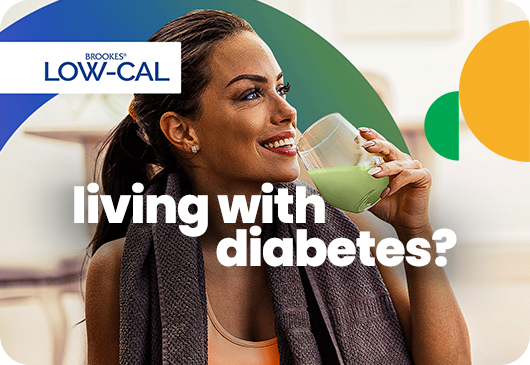For more information on diabetes visit: https://sweetlife.org.za/what-is-diabetes/
What is Type 1 Diabetes and how is it treated?
Type 1 diabetes is a chronic autoimmune condition which occurs when the body is unable to produce insulin. Insulin is the hormone that regulates blood glucose levels. Type 1 Diabetes is not preventable or curable and the cause is unknown. Anyone can get Type 1 diabetes.
Type 1 diabetics are insulin dependent for life. Taking multiple daily insulin injections can lead to hypoglycemia (low blood sugar) or hyperglycemia (high blood sugar). Blood sugar levels must be continuously monitored either with finger pricks or a continuous glucose monitor to ensure that blood glucose levels remain in range, to reduce short and long term complications due to hypoglycemia or hyperglycemia. To keep blood glucose levels in range insulin doses must be carefully calculated taking physical activity, stress levels, food intake, illness, and other factors into consideration.
What is Type 2 Diabetes and how is it treated?
Accounting for about 90% of diabetes cases, Type 2 usually combines a lack of insulin and insulin resistance. The body can still produce insulin but it does not know how to process the insulin.
Type 2 diabetes, also known as diabetes 2 or sugar diabetes (in South Africa) is most common in adults. That said, large numbers of children are being diagnosed (usually if they are overweight and not active). People who are overweight or who have diabetes in their family are more at risk and may need to lose weight.
The medication for Type 2 diabetes is usually tablets followed by insulin injections at a later date if necessary.
For more information on Type 1 and Type 2 diabetes: Read More
My Story
I was diagnosed with Type 1 diabetes at the age of 16. I showed all of the symptoms - unexplained weight loss, extreme thirst, frequent urination, blurry vision and extreme fatigue. My blood glucose levels were tested using a simple finger prick method, when these showed very high sugar readings I had to go for additional blood tests to get my 3 month blood glucose average known as an HbA1c level. From there I was diagnosed with Type 1 diabetes and sent to a diabetes specialist known as an Endocrinologist.
My Endocrinologist taught me about my new lifestyle. How I would have to inject myself at least 4 times a day with insulin, eat a balanced diet, test my blood glucose levels at least 5 times a day and exercise.
It has been 11 years since I first got diagnosed and I am still learning everyday how best to manage my blood glucose levels. Since then better insulin has become available on the market and I now use a device called a FreeStyle Libre, known as a Flash Glucose Monitor to continuously check my blood sugar levels using an app on my phone, and scanning the device which is inserted onto my arm.
Diet and meal ideas
There are many options for a person living with diabetes to follow when it comes to an eating plan. Most Type 2 diabetics follow a low carb/banting diet which helps to maintain weight and blood glucose levels. It is important for a person living with diabetes to visit a dietician to get advice on what food groups they should be eating. As a Type 1 diabetic I have to calculate how many carbohydrates I am consuming at each meal so that I know how much insulin I need to inject.
I follow a balanced eating plan using Low GI foods, life is made a lot easier as we can now see which products on our local grocers shelves are Low GI because of the Diabetes SA Endorsed logo which can be found on Brookes Low Cal’s low kilojoule squash. I tend to eat a lot of vegetables, and small portions of carbohydrates at a time. I also eat 6 smaller meals spread throughout the day, rather than a large meal when eating. When it comes to beverages I stay away from sugary drinks. Water, tea and Brookes Low Cal squash are top of my list.
Physical health
Exercise is a very important tool when it comes to diabetes management. I try to get in 30 minutes of movement each day. This helps with insulin sensitivity and can really boost your endorphins which get released into the body to relieve pain and stress! Whether it's a walk, run or swim - each bit helps! If you feel that you can’t find the time, start with a 10 minute walk after each meal. And remember to stay hydrated!
Mental Health
Living with a chronic illness is not easy. It takes a lot of hard work and we never get to take a break - this can have an impact on our mental health. Studies show that people living with diabetes are twice as likely to be diagnosed with clinical depression. As people living with diabetes we can also experience symptoms of diabetes burnout, such as feeling controlled by our diabetes, feeling isolated or alone when it comes to diabetes management, strong negative feelings towards our condition which can lead to avoidance of some or all of our diabetes management activities. Diabetes burnout can leave you feeling unmotivated to change your behaviours.
It is important to know that you are not alone and that diabetes burnout can be treated. Please reach out to your doctor and your support system if you are feeling burnout.
Advice for diabetics
My greatest piece of advice would be to get in touch with the diabetes community. You can follow me on @everydayisdiabetesday on Instagram and Facebook for tips and insight into living with diabetes everyday. You can also follow Diabetic South Africans on Facebook and visit their website for more diabetes related information https://sweetlife.org.za/.




